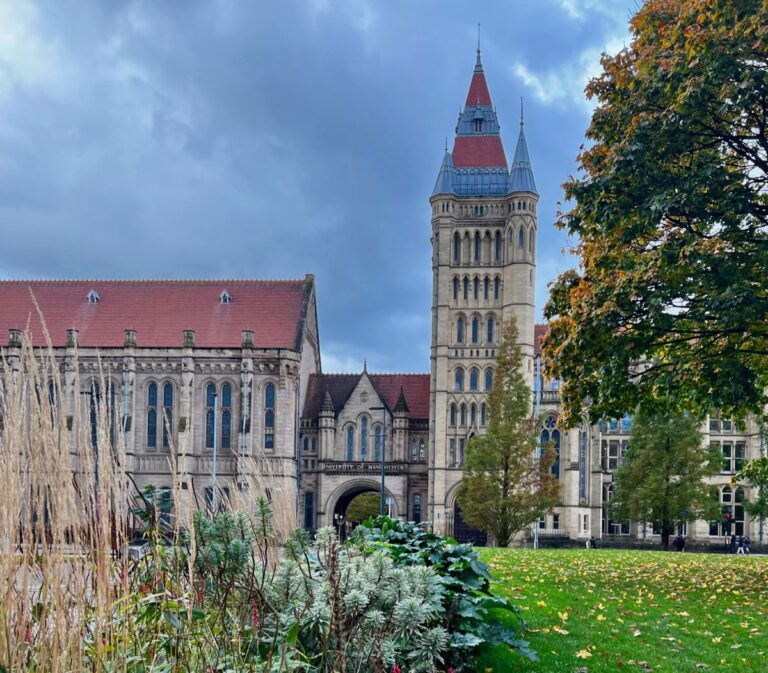Are you ready to embark on a journey that not only allows you to explore breathtaking destinations but also contributes towards the preservation of our planet? Look no further, as this guide to sustainable eco-tourism is here to help you navigate through the realm of responsible travel. From discovering eco-friendly accommodations to engaging in local conservation efforts, this article will provide you with the necessary knowledge and insights to make environmentally-conscious choices while satisfying your wanderlust. So pack your bags, because a world of sustainable adventures awaits!

What is Eco-Tourism?
Eco-tourism, also known as ecological tourism, is a form of travel that focuses on exploring natural environments while minimizing the impact on the environment and supporting local communities. It promotes responsible travel practices, conservation of natural resources, and preservation of cultural heritage. Eco-tourism offers travelers the opportunity to experience the beauty of the natural world while making a positive contribution to the places they visit.
Definition
Eco-tourism can be defined as responsible travel to natural areas that conserves the environment, sustains the well-being of local communities, and involves interpretation and education. It involves activities such as nature walks, wildlife observation, and engaging with local communities in a sustainable manner. The key elements of eco-tourism are minimizing the environmental impact, supporting local economies, and promoting awareness and education.
Importance of Eco-Tourism
Eco-tourism plays a crucial role in protecting natural and cultural heritage around the world. By choosing eco-friendly travel options and supporting sustainable practices, travelers can help to conserve ecosystems and minimize the negative effects of tourism on the environment. Additionally, eco-tourism provides economic benefits to local communities, encouraging them to preserve their natural resources and cultural traditions. It also promotes a deeper understanding and appreciation of nature, contributing to the conservation efforts on a global scale.
Principles of Sustainable Eco-Tourism
To ensure the practice of eco-tourism is sustainable and responsible, certain principles need to be followed.
Conservation of Natural Resources
Conserving natural resources is a fundamental principle of eco-tourism. This includes minimizing energy and water consumption, reducing waste generation, and preserving biodiversity. Travelers can support this principle by following Leave No Trace principles, such as not disturbing the flora and fauna, avoiding littering, and respecting wildlife habitats.
Preservation of Cultural Heritage
Preserving cultural heritage is essential in eco-tourism. It involves respecting local customs, traditions, and practices, and engaging in responsible tourism. Travelers can learn about the cultural significance of the places they visit and ensure their actions do not disrupt or exploit local communities.
Support for Local Communities
Supporting local communities is a key aspect of eco-tourism. Travelers can contribute to the economic well-being of local communities by purchasing local products and services, staying in locally-owned accommodations, and engaging with local guides and artisans. This helps to support sustainable livelihoods and ensures that the benefits of tourism are shared with the communities that host visitors.
Choosing a Sustainable Destination
Choosing a sustainable destination is the first step towards practicing eco-tourism. Here are some tips to help you make an informed decision.
Researching Eco-Friendly Destinations
Before planning your trip, spend some time researching destinations that prioritize sustainability and conservation. Look for places that have implemented eco-friendly practices, such as renewable energy initiatives, protected areas, and sustainable tourism certifications.
Evaluating the Environmental Impact
When selecting a destination, consider its environmental impact. Look for indicators such as the availability of public transportation, waste management practices, and protection of natural areas. Choose destinations that have effective measures in place to minimize their ecological footprint and reduce damage to the environment.
Transportation and Eco-Friendly Travel
Transportation plays a significant role in the environmental impact of travel. To minimize your carbon footprint, consider the following options.
Choosing Sustainable Transportation Options
Opt for environmentally friendly transportation options, such as trains or buses, whenever possible. These modes of transport generally have lower carbon emissions compared to air travel. If flying is necessary, consider airlines that have implemented carbon offset programs to help mitigate the environmental impact.
Reducing Carbon Footprint during Travel
Regardless of the mode of transportation, there are ways to reduce your carbon footprint during travel. Pack light to reduce fuel consumption, choose direct flights whenever possible to minimize energy use, and offset your carbon emissions through reputable carbon offset programs. Additionally, explore opportunities to use bicycles or walk for short distances in your destination.

Accommodation and Sustainable Practices
Choosing sustainable accommodation is another essential aspect of eco-tourism. Consider the following options to support sustainable practices.
Eco-Lodges and Green Hotels
Look for eco-lodges and green hotels that prioritize sustainability. These accommodations often implement practices such as energy and water conservation, waste reduction, use of renewable resources, and support for local communities. Many eco-lodges and green hotels also have certifications, such as LEED or Green Globe, which validate their commitment to sustainable practices.
Certifications and Regulations
When selecting an accommodation, look for certifications and regulations that demonstrate its commitment to sustainable practices. These certifications ensure that the establishment meets certain environmental standards and follows responsible tourism guidelines. Examples include eco-tourism certifications, green hotel certifications, and sustainable tourism accreditation.
Respecting Local Cultures and Communities
Respect for local cultures and communities is paramount in eco-tourism. To ensure a positive impact, keep the following guidelines in mind.
Understanding Local Customs
Take the time to learn about the local customs, traditions, and etiquette of the destination you are visiting. Respect religious and cultural practices, dress appropriately, and be mindful of your behavior in public spaces. Learning a few basic phrases in the local language can also go a long way in establishing a connection with the local community.
Engaging in Responsible Tourism
Engage in responsible tourism by respecting the rights and dignity of local residents. Avoid exploitative activities, support local artisans and businesses, and be mindful of the impact of your actions on the local environment and community. Engaging in responsible tourism helps to foster positive relationships and goodwill between travelers and the local communities they visit.
See All the Sights With One Pass
Supporting Local Economies and Conservation Efforts
Supporting local economies and conservation initiatives is an integral part of eco-tourism. Here are some ways to make a positive impact.
Purchasing Local Products and Services
Support local economies by purchasing locally-made products and services. This helps to generate income for local communities, preserve cultural traditions, and reduce the carbon footprint associated with importing goods. Look for locally-owned businesses, markets, and cooperatives that sell authentic and sustainable products.
Contributing to Conservation Initiatives
Consider contributing to local conservation efforts through donations or participation in volunteer programs. Many eco-tourism destinations offer opportunities to engage in wildlife conservation programs, reforestation projects, or marine life protection initiatives. These activities not only provide valuable support to conservation efforts but also offer unique experiences and insights into the local environment.
Eco-Tourism Activities and Experiences
Eco-tourism provides a wide range of activities and experiences that allow travelers to connect with nature and contribute to its preservation. Here are a couple of examples.
Nature Walks and Hiking Tours
Explore the natural beauty of eco-tourism destinations through nature walks and hiking tours. These activities offer the opportunity to observe wildlife, appreciate scenic landscapes, and learn about the local flora and fauna. Make sure to follow designated trails, respect wildlife habitats, and adhere to any regulations or guidelines provided by local authorities.
Wildlife Conservation Programs
Participate in wildlife conservation programs that provide hands-on experiences and education about wildlife and habitat preservation. These programs often involve activities such as wildlife monitoring, habitat restoration, and environmental education. By contributing to these programs, you not only support conservation efforts but also gain a deeper understanding of the challenges faced by local ecosystems and their inhabitants.
Minimizing Environmental Impact
Minimizing environmental impact is crucial in eco-tourism. The following practices help reduce negative effects on the environment.
Leave No Trace Principles
Adhere to Leave No Trace principles, which aim to minimize the impact of outdoor activities on natural environments. Some key principles include properly disposing of waste, staying on designated trails, respecting wildlife, and minimizing campfire impacts. These practices help maintain the integrity of natural areas and ensure they can be enjoyed by future generations.
Waste Reduction and Recycling
Reduce waste generation by carrying reusable water bottles, utensils, and shopping bags. Dispose of waste responsibly in designated bins and recycling facilities. When possible, support establishments that prioritize waste reduction and recycling by implementing their own sustainable practices. By minimizing waste and promoting recycling, travelers can contribute to a cleaner and healthier environment.
Promoting Awareness and Education
Promoting awareness and education is essential for the long-term success of eco-tourism. Consider the following ways to share experiences and knowledge.
Educational Programs and Workshops
Participate in educational programs and workshops organized by eco-tourism destinations or local conservation organizations. These programs provide valuable insights into the environmental and cultural significance of the places you visit. They also offer opportunities to learn about sustainable practices, conservation efforts, and the challenges facing local communities.
Sharing Experiences and Knowledge
Share your eco-tourism experiences and knowledge with others through social media, blogs, or personal interactions. By sharing stories, tips, and recommendations, you can inspire others to adopt sustainable travel practices and make conscious choices. Engage in conversations about eco-tourism and promote the value of responsible travel within your personal networks and online communities.
In conclusion, eco-tourism offers an exciting and fulfilling way to explore the world while minimizing the impact on the environment and supporting local communities. By following principles of sustainable eco-tourism, choosing sustainable destinations, and practicing eco-friendly travel, we can actively contribute to the conservation of natural resources and cultural heritage. By respecting local cultures, supporting local economies and conservation efforts, and promoting awareness and education, we can enhance the positive impact of our travels. Let’s embrace the spirit of eco-tourism and embark on unforgettable journeys that not only enrich our lives but also contribute to the well-being of the planet.







